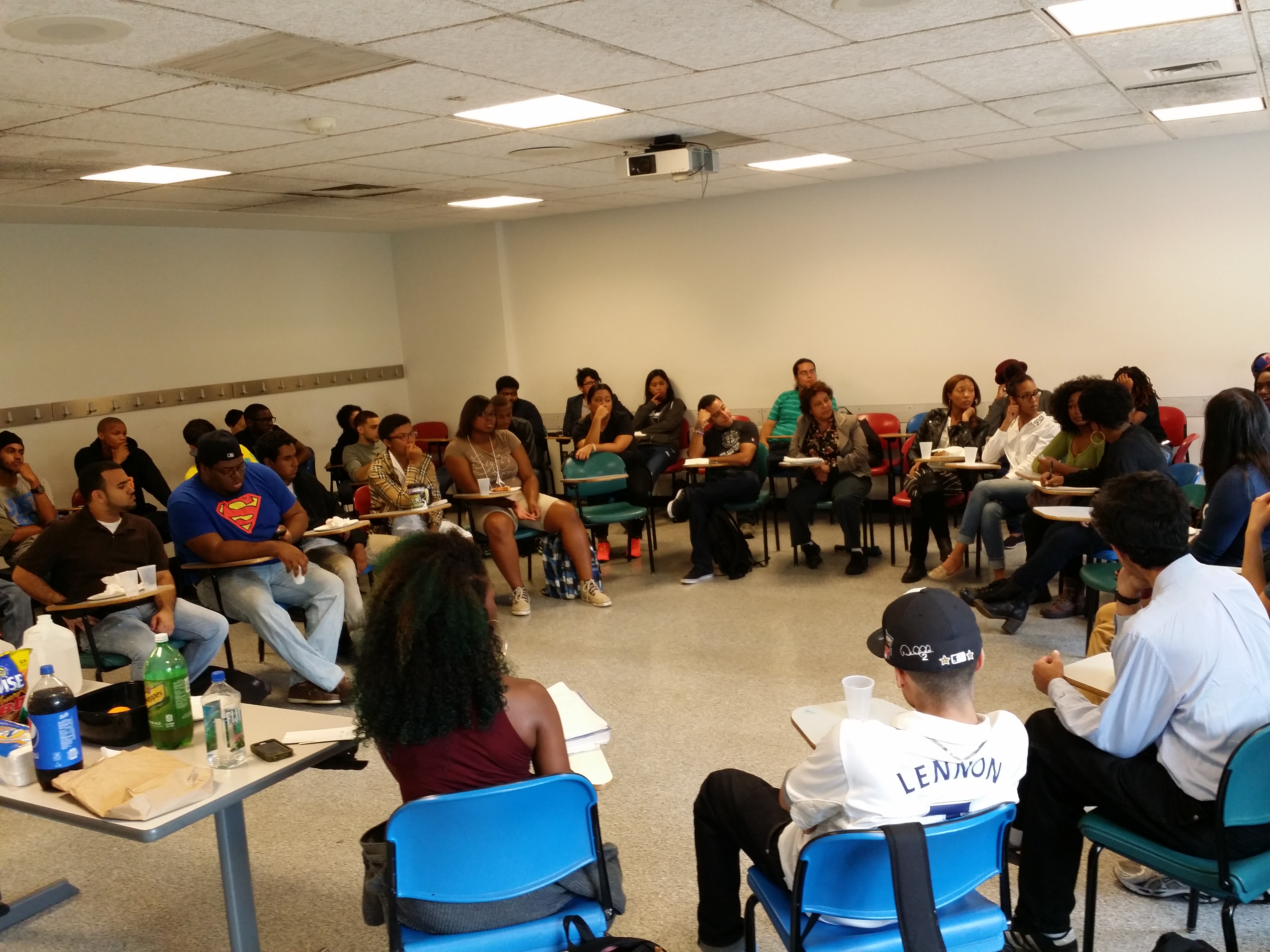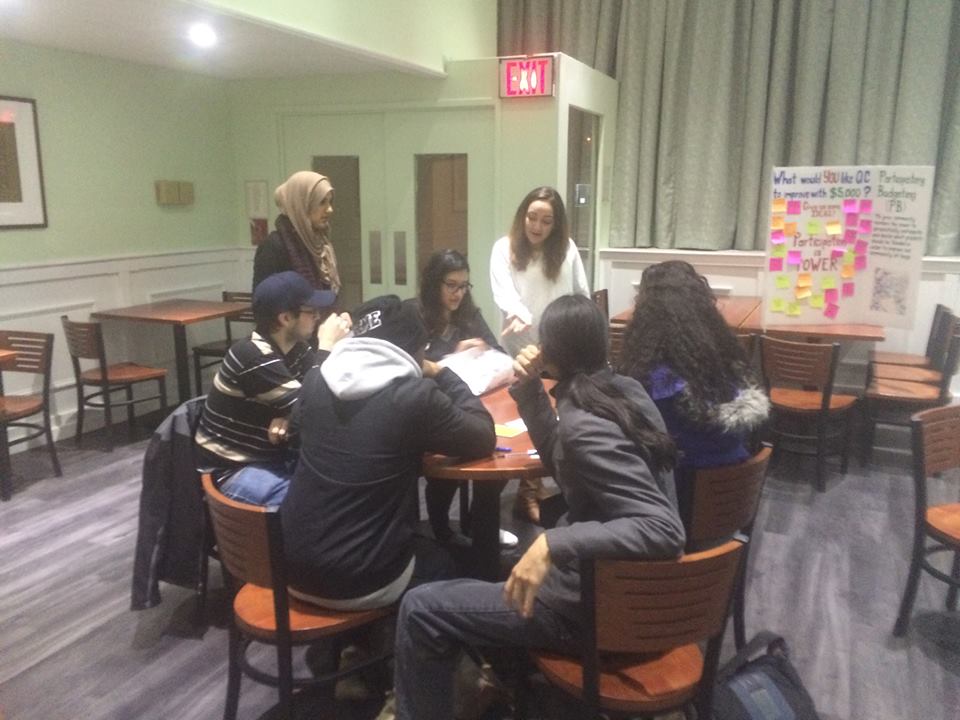The events in Ferguson, Mo. – in which Darren Wilson, a white police officer shot Michael Brown, a young African American teen, to death – became a central theme in a discussion Oct. 15 in Powdermaker Hall.
The forum, presented by Students Without Borders, the Ethnic Media Collective and the Queens College Dream Team, began with the introduction on what happened in Ferguson and quickly changed to the subject of institutional racism of police departments around the United States.
With 40 students attending and 36 people of color, many expressed different feelings about the oppression that affects them as ethnic minorities.
One subject was mass incarceration, specifically how the U.S government unfairly jails African-Americans at a much higher rate. As of 2014, African-Americans make up 1 million of the 2.3 million imprisoned, said the NAACP.
Other subjects included how the media portrays what is happening in Ferguson and institutional racism and gentrification, a “general term for the arrival of wealthier people in an existing urban district [and] a related increase in rents and property values,” said PBS.
“The foundation of the police came from the creation of militias from the south, that searched for slaves that escaped to the north to bring them back, it’s a racist institution,” said Eric Nava, a visiting student from Lehman College.
These militias primarily focused on reinforcing the economic status quo, Dr. Victor Kappler, an Eastern Kentucky University professor said. These militias were the foundation of modern policing and were called “slave patrols or night watches,” said Kappler.
The murder of Brown sparked protests all around the U.S, especially in Missouri cities like Ferguson and St. Louis.
More protests occurred in Shaw, Mo. where another African-American teen, Vonderitt Myers Junior, was shot and killed by an off-duty police officer for allegedly pointing a gun at the officer.
“If it is conditioned in a cops mind that African-Americans are threat, we cannot change that, but we could possibly appeal to someone, city council, the police commissioner, to change these policies,” said freshman Bianca Belong.
During the discussion, the concept of community policing, where officers work primarily with the community instead of acting indepdent, was brought up as a potential solution.
“No matter what the police have as weapons, they will continue to devastate black people. If they can only shoot us in the arms, they will shoot us in the arms, if they only have tasers, they’ll use tasers. The only way to stop it is to get rid of the police entirely and have communities police themselves,” senior Gregorie Jacques said.
By the end of the forum, a group of 15 students remained and spoke more outside the entrance of Powdermaker Hall.
“There was a lot of information we wanted to talk about, but we couldn’t get through all of it. It’s good to know a lot of people feel the same way, there’s some solidarity on campus,” senior Kiomi Rodgers said.














